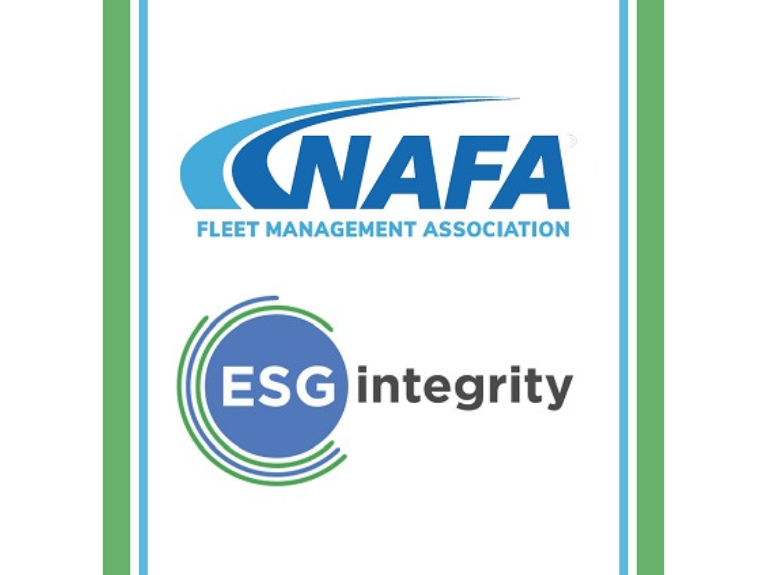Sustainability and Alternative Fuels
As the industry’s go-to for the latest in fleet management knowledge and information, NAFA’s knowledge-based resources allow you to accelerate your sustainability initiatives and to drive results for your fleet. Fast-paced changes occur in the alternative fuels arena, especially with regard to technology, laws, regulations, OEM vehicle availability, incentives, etc. and NAFA is your go-to resource for staying up to date with the latest information.
Prepare Your Fleet for a Sustainable Future

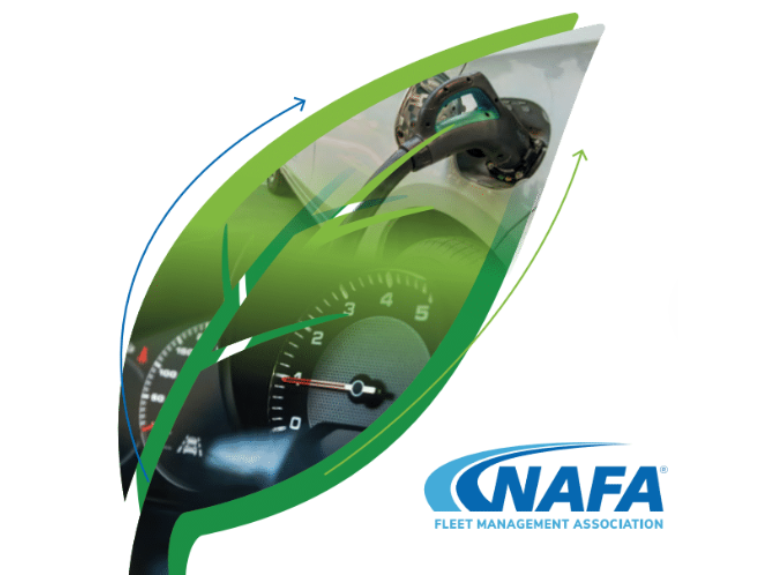
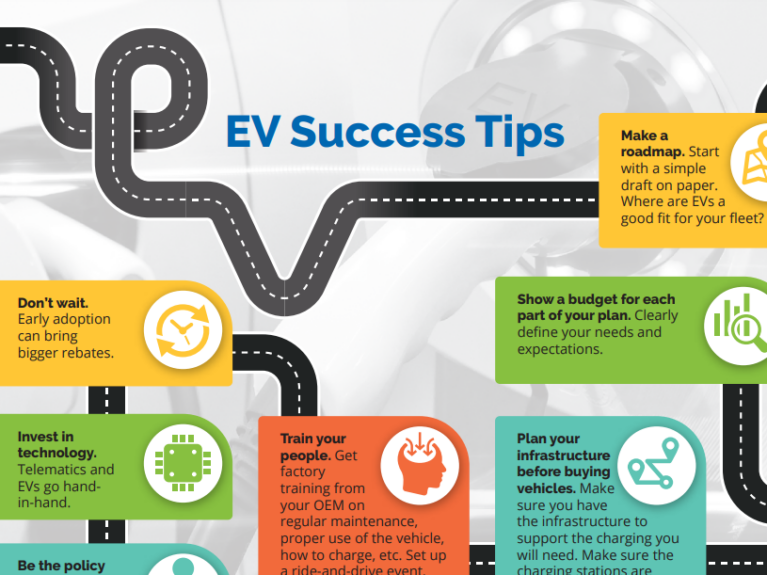
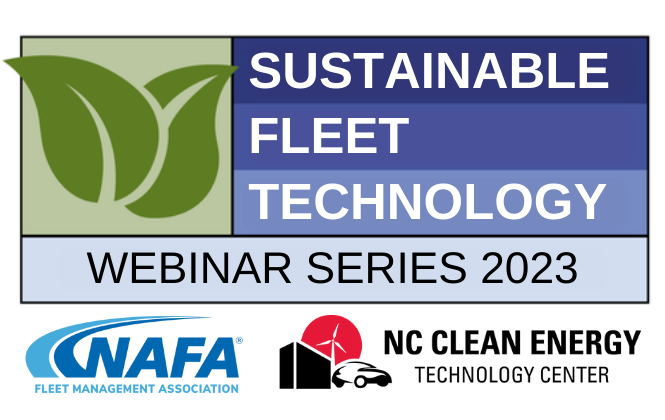
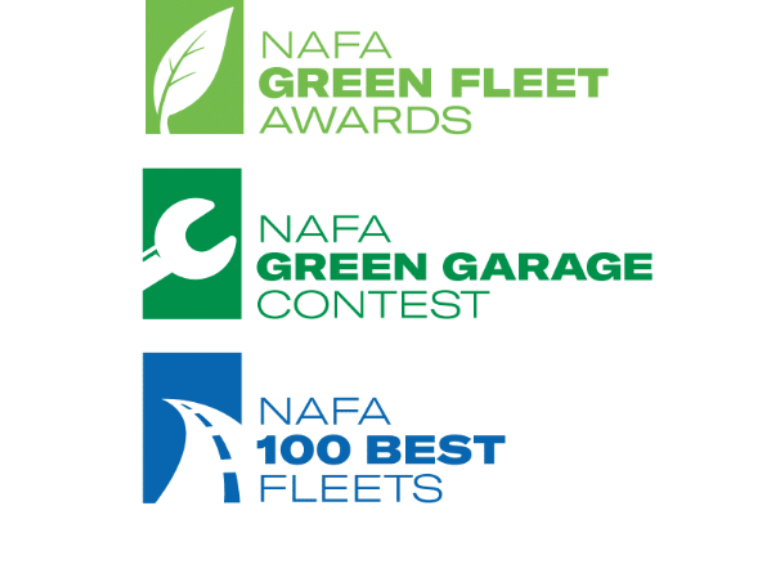
More Fleet Sustainability and Alternative Fuel Resources
NAFA’s U.S. Legislative counsel updates a summary of the status of federal U.S. laws and regulations.
For a current report, follow this link.
U.S. Department of Energy Resources to Help Fleets Tackle Alternative Fuels
Fleets across the country are implementing alternative and renewable fuels, advanced vehicle technologies, and fuel-saving strategies into their operations to reduce transportation costs. With a broad portfolio of fuels and technologies available, evaluating options and achieving goals around alternative fuels, mobility solutions, and energy-efficient vehicle technologies is not always easy.
To help fleets meet their transportation energy and economic goals, the U.S. Department of Energy (DOE) Vehicle Technologies Office’s (VTO) Technology Integration Program provides objective data, real-world lessons learned, online tools, and technology assistance.
The Alternative Fuels Data Center (AFDC) is a DOE VTO website for fleets, fuel providers, policymakers, Clean Cities coalitions, and others working to improve efficiency, cut costs, and reduce emissions in transportation. To review alternative fuels and weigh options, start with the Alternative Fuels and Advanced Vehicles page. The AFDC also enables decision makers to access a large suite of online tools and a vast collection of vetted data. The AFDC Tools page provides a collection of calculators, interactive maps, and data searches to assist fleets. Here are some of the top tools on the AFDC:
- Alternative Fueling Station Locator
The AFDC’s most used tool is the Alternative Fueling Station Locator. For over 20 years, the Station Locator has helped fleets and individuals locate alternative fueling stations and assisted transportation decision makers in tracking industry development. Fleets that have private alternative fueling stations can search to see whether their station is included in the database. Submitting your station helps show the growth in alternative fueling infrastructure, and ultimately encourage future investment in alternative fuels. - Alternative Fuel and Advanced Vehicle Search
Fleets in the market for alternative fuel and advanced vehicles can easily find and compare the latest alternative fuel vehicles and engines, electric vehicles, and hybrids, through the Vehicle Search database. To start a search, simply select a vehicle, engine, hybrid/conversion system, or manufacturer, then refine by fuel type. The database is updated regularly as new models are released or as vehicles specifications are changed. You can also use the tool to determine what alternative fuel options are currently available for each vehicle type. - Federal and State Laws and Incentives
As you embark on an alternative fuel project, the one question you’re sure to ask is: What funding opportunities are available? Many fleets are aware of funding through the Volkswagen Environmental Mitigation Trust, but you may be leaving other funding on the table. To find out what federal, state, or private/utility incentives are available in your area, use the Federal and State Laws and Incentives database. Through an advanced search function, you can customize your query by state, technology/fuel, or user type, or simply through a keyword search. As the name implies, you can also use this database to understand laws and regulations related to alternative fuels and vehicles, air quality, fuel efficiency, and other topics. - State Information Search
Through the State Information page, get a state-specific snapshot on alternative fuels and advanced vehicles. In addition to neatly packaging the above resources, this search page includes fuel production and consumption data, case studies, regional fuel prices, electricity sources and vehicle emissions, and more. This can help you examine long-term trends for your area. You can also review DOE VTO funded transportation projects in your state that advance affordable, domestic transportation fuels and technologies.
AFLEET Tool
The Alternative Fuel Life-Cycle Environmental and Economic Transportation (AFLEET) Tool developed by DOE’s Argonne National Laboratory (ANL), is the go-to tool for fleets to calculate and compare the economic and environmental impacts of alternative versus conventional fuel vehicles. You can estimate total cost of ownership, petroleum use, greenhouse gas emissions, and air pollutant emissions for light- and heavy-duty vehicles using detailed spreadsheet or online inputs. Based on the AFLEET Tool, ANL also developed the Heavy-Duty Vehicle Emissions Calculator (HDVEC). HDVEC is an online calculator to aid fleets and decision makers compare vehicle technologies and consider allocation of funding for environmental mitigation projects.
The DOE resources don’t stop at online tools! Fleets also have access to subject matter experts through the following technical assistance services.
Technical Response Service
If you need guidance navigating the AFDC or understanding fuel or technology options, the Technical Response Service (TRS) can help! TRS representatives are seasoned experts who are here to help you. You can contact the TRS by email (TechnicalResponse@icf.com) or phone (800-254-6735) for any questions that you have on these topics. Look for the TRS icon throughout the AFDC for your one-click access to technical assistance.
Clean Cities Coalitions
Nearly 100 local coalitions serve as the foundation of the Clean Cities Coalition Network. These coalitions leverage DOE VTO resources to create networks of local stakeholders and provide technical assistance to fleets. For over 25 years, coalitions have garnered the respect and trust of fleets to smooth the transition to alternative fuels and advanced vehicle technologies. Your local coalition can advise on the appropriate tools to determine a solution that meets your needs. For on-the-ground project assistance, connect with your coalition today.
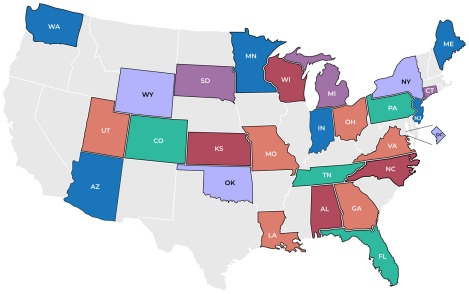

The DRIVE Electric USA initiative is developing or strengthening statewide “Drive Electric” programs across the USA. The project leadership in each state is working through seven broad barriers (“Priority Areas”) to EV adoption – including examples like utility and local government education, local EV chapter development, and engaging fleets – to accelerate EV adoption in their state. Visit the website, www.DRIVEElectricUSA.org, to learn more about the initiative.
Biobased Academy from the American Lung Association
 Biobased Academy® is a comprehensive training program designed to educate professionals on the operational, health, safety, and environmental benefits of biobased alternatives. The American Lung Association’s Department of Clean Air Initiatives proudly offers this program in partnership with the United Soybean Board.
Biobased Academy® is a comprehensive training program designed to educate professionals on the operational, health, safety, and environmental benefits of biobased alternatives. The American Lung Association’s Department of Clean Air Initiatives proudly offers this program in partnership with the United Soybean Board.
The American Lung Association is currently offering two comprehensive training programs through Biobased Academy. The Biobased Certified Fleet Professional (BCFP) course is designed to educate fleet professionals, mechanics, and other industry representatives on the benefits of biobased fleet alternatives. The Biobased Certified Facilities and Property Professional (BCPP) course is designed to educate facilities and grounds professionals, architects, sustainability professionals, and other industry representatives on the benefits of biobased facilities and grounds alternatives.
Biobased Certified Fleet Professional (BCFP)™
Upon completion of the Biobased Certified Fleet Professional (BCFP)™ course, participants will have a firm understanding of how and why biobased fleet products are safe, renewable, and reliable alternatives to traditional and petroleum-based products that improve operational, health, safety, and environmental performance. Participants will also understand the type and variety of biobased products and fuels available, and how to procure them. Professionals will also have a general understanding of operational, health, and safety best practices and fleet sustainability best practices and certification programs.
Programmatic Benefits and Purpose
- Benefit human and environmental health through reduced exposure to harsh chemicals and emissions produced through the use and production of petroleum-based products.
- Assist organizations in achieving health and environmental goals with biobased fleet products.
- Increase professional knowledge of biobased fleet products and associated benefits.
- Contribute to the U.S. economy by increasing the use and sale of biobased products produced from domestic renewable resources, with emphasis on biobased products made from soy.
- Educate leading fleet professionals and assist in the implementation of sustainable, cutting-edge fleet best practices and biobased products to create ideal candidates for local, state, national, and international awards and certifications.
At the completion of this certification program, participants will gain:
- Awareness of the health and environmental impacts of air and water pollution and exposure to harmful chemicals.
- Awareness of the requirements and liabilities associated with spills and releases of pollutants and contaminants.
- An understanding of basic human physiology and the impacts of exposure on human health.
- An understanding of the current definitions and meanings of commonly used terms related to environmental sustainability and sustainable fleet operations.
- An understanding of biomass-based diesel fuel standards, differences, performance attributes, storage and blending procedures, use, and more.
- A general understanding of fleet sustainability best practices and certification programs.
An understanding of the type and variety of biobased fleet products available for operations and maintenance activities, with emphasis on soy biobased products.
Biobased Certified Facilities and Property Professional (BCPP)™
Upon completion of the Biobased Certified Facilities and Property Professional (BCPP)™ course, participants will have a firm understanding of how and why biobased facilities and grounds products are safe, renewable, and reliable alternatives to traditional and petroleum-based products that improve operational, health, safety, and environmental performance. Participants will also understand the type and variety of biobased facility and grounds products available, and how to procure them. Professionals will also have a general understanding of the basics of sustainable building best practices and common sustainable building certification programs.
Programmatic Benefits and Purpose
- Benefit human and environmental health through reduced exposure to harsh chemicals and emissions produced through the use and production of petroleum-based products.
- Assist organizations in achieving health and environmental goals with biobased facility and grounds products.
- Increase professional knowledge of biobased facility and grounds products and best practices.
- Contribute to the U.S. economy by increasing the use and sale of biobased products, with emphasis on soy biobased products.
- Educate leading professionals and assist in the implementation of sustainable, cutting-edge facility and grounds best practices and biobased products to create ideal candidates for local, state, national, and international awards and certifications.
At the completion of this certification program, participants will gain:
- Awareness of the health and environmental impacts of air and water pollution and contact or exposure to harmful chemicals.
- Awareness of the requirements and liabilities associated with spills and releases of pollutants and contaminants.
- An understanding of basic human physiology and the impacts of exposure on human health.
- An understanding of the current definitions and meanings of commonly used terms related to environmental sustainability and sustainable building practices.
- A general understanding of sustainable building best practices and certification programs.
- An understanding of the type and variety of biobased products applicable for facility and grounds operations and maintenance activities, with emphasis on soy biobased products.
Federal Fleet Requirements
Federal fleets are subject to several statutory requirements, executive orders, and other policies that apply to fleet management, alternative fuel use, and petroleum-reduction. To learn more about Federal fleet requirements, visit the site.
State and Alternative Fuel Provider Requirements
Certain state government and alternative fuel provider fleets are required to acquire a percentage of alternative fuel vehicles (AFVs) each year or reduce petroleum consumption in lieu of acquiring AFVs. For more information, about the state and alternative fuel provider fleet requirements, visit the Office of Energy Efficiency & Renewable Energy website.
Canadian Government Information
Officials at Natural Resources Canada consolidate their information on alternative fuels. This website offers a wide variety of information in English and French. Here is a database that calculates incentives, grants, and costs by province.

